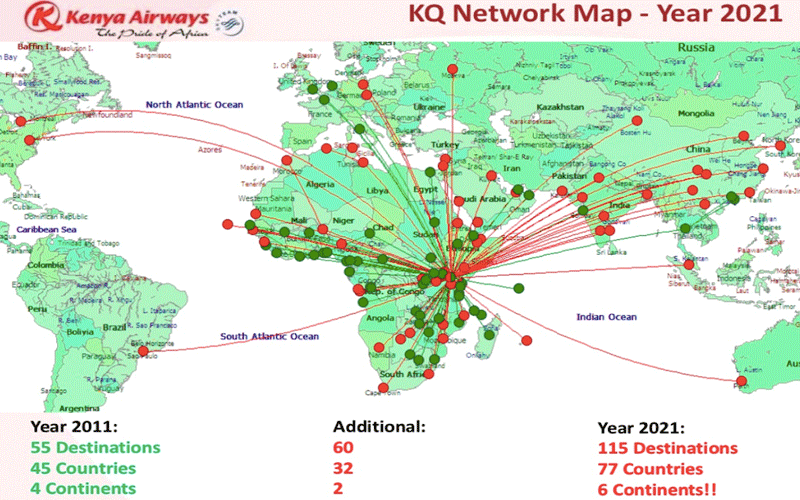Promoting intra-Africa travel key to region’s tourism recovery plans
By Harriet James, May 7, 2020
Researchers and industry players predict that it will take some time — up to two years in worst-case scenarios — for the global tourism sector to recover from the devastation caused by the Covid-19 pandemic.
Already, the sector has lost billions as a result of closure of hospitality establishments, suspension of passenger flights and closure of borders.
Going forward, stakeholders agree on one thing post-coronavirus: domestic and regional travellers will be the first off the blocks.
“Domestic and regional travel will be the first ones to recover before international travel resumes,” says Nicanor Sabula, travel expert and MD at African Association Management Company (Afamco).
“African leaders should take advantage of the current situation to enforce the existing African Union protocols that promote intra-Africa travel.
These include the Single African Air Transport Market and the African Continental Free Trade Area (AfCTA),” he adds.
Tourism and Wildlife Cabinet secretary, Najib Balala says Africa has 1.2 billion people, but sadly, the continent gets only 62 million tourists annually.
“Covid-19 is an opportunity to act and expand further to create more jobs and be more self-reliant.

This should also be the time to take care of the communities around us and be sensitive to the environment,” said Balala.
Visa problems
The CS wants the continent to unite and form a federation to be responsible in advancing tourism.
“If we can have 300 to 400 million people travelling within Africa, we can boost each other’s jobs, generate revenues without being dependent on foreigners,” he said.
He gave an example of Spain’s tourism industry where 82million of its travellers are mostly domestic or from other European countries.
Balala predicts that most international destinations will prioritise on their domestic visitors.
“In Europe, most people can move around in about 27 countries with neither a visa nor border passes.
This is the way to go for Africa. This will take time to implement, but if we start now, in five years we will be resilient from any shocks whatsoever, including from travel advisories imposed by western countries,” Balala said.
Yamoussoukro Declaration
But is a call for regional tourism a workable idea for the African continent? Travel expert Nicanor Sabula predicts that Intra-Africa travel will be inevitable post Covid-19.
Nicanor says it’s time for the continent to realise the dream of opening it’s skies and boarders to promote people to people movement after the pandemic is contained, something that was stipulated in the Yamoussoukro Declaration of 1988 by the African Union heads of state conference.
The treaty that came into binding in 2002, 44 countries allowed open skies amongst most African countries.
Currently, high flight costs are one of the impediments of African travel. It is cheaper to fly to Europe, or Dubai than fly within the continent.
For instance, before the pandemic, flying from Nairobi to Maputo economy class would cost $1,000 (Sh107,000) while Nairobi to Zanzibar fares averaged $300 (S32,100).
In contrast, flying to Dubai from Nairobi cost $350 (Sh37,500), while passengers flying to London paid $600 (Sh64,000).
This coupled with visa challenges makes travelling to any African country a labour of love.

“Lack of air connectivity is a big issue. Even after Covid, given the reduction in the number of flights, I foresee a period with hiked flight fares and less planes for about year,” says Charlotte Beauvoisin, a Travel Expert and chief creator, Diary of a Muzungu, a travelog.
Charlotte says the Meetings, Incentives, Conferences and Exhibitions (Mice) sector would be more appropriate than leisure in sustaining tourism.
However, with different countries handling the pandemic differently, it will take long before conventions resume.
According to the Henley & Partners Visa Restrictions Index, Kenya’s passport ranks ninth in Africa and 72 in the world. It means a Kenyan can travel to 71 countries visa free.
An African Union (AU) report indicates that Africans can travel without a visa to just 22 per cent of other countries.
In 2013, AU nation states agreed to have one passport to be adopted by all members.
To date, the Seychelles and Ghana are some of the nations where visa-free travel is open to all Africans.
African passpport
By 2020, the AU desired to have travel documents passport similar to that of the European Union —but little action has happened.
The fear of illegal immigration, drug trafficking, smuggling, spread of diseases as well as bureaucracy in the issuance of visas has made some of the countries rigid in making changes.
The cost of visas is also unbearable at an average of $50 (Sh5,350) within Africa.
Moreover, most countries are only willing to give single entry visas to other African visitors and a multiple visa is twice as expensive.
“We have treaties signed, but we have not implemented any. Many African destinations know what to offer the European market, but not what our people desire,” said Donald Djobo, general manager and cofounder, My Go Worldwide Africa recently.
Clement Waigwa, Travel Experience manager at Virgin Explorer says many Kenyans desire to travel abroad.
Apart from a few who come for customised trips and to attend the annual Nyegenyege music festival in Uganda, most eye Dubai. “Victoria Falls in Zimbawe is one popular destination,” he says.
Waigwa says African travel is not taken seriously. “It’s a big source market. We have a vibrant group of travellers, and there is also a growing segment of solo travellers.
Each person has his own taste and every country has own unique features,” he adds.
Felix Migoya, a tour guide and chairman of East Africa Association of Tour Guides is calling for social media campaigns and hash tags as well as diversified itineraries for regional travellers.
“Diversified itineraries may include outdoor activities even while staying in the parks, revised costing both for accommodation and tour packages,” he adds.
Balala says for the next two years, Kenyans will have to be more self-reliant, with marketing strategies being realigned and provision of affordable and interactive package.